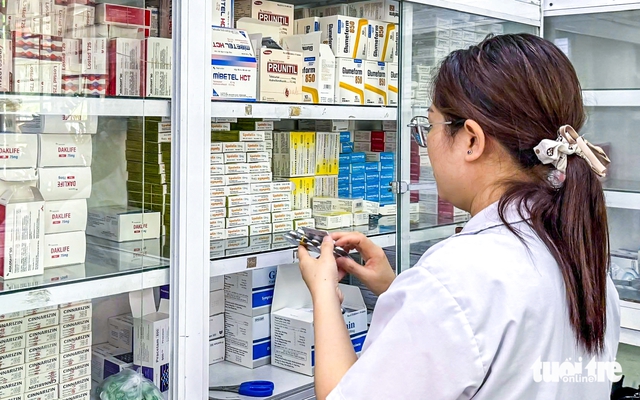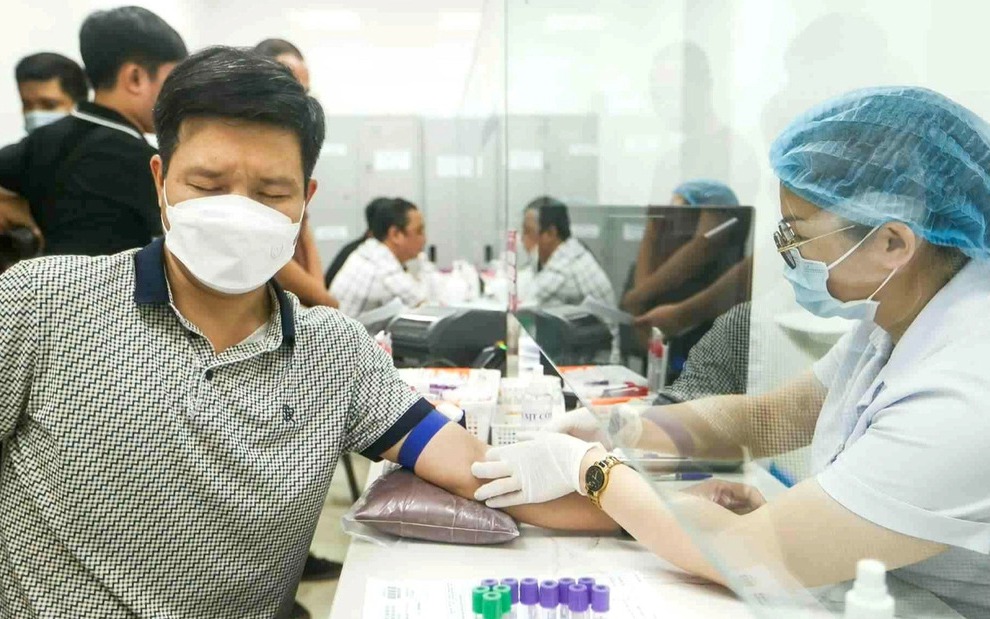
A local health station in Ho Chi Minh City provides essential medicines and services, helping build public trust and reduce pressure on higher-level hospitals. Photo: Thu Hien / Tuoi Tre
The restructuring drive resulted in 63 Vietnamese provinces and cities being reduced to 34 and local administrations being divided into provinces/cities and wards/communes, effective July 1.
The current Ho Chi Minh City was formed by merging the city and two neighboring provinces—Ba Ria-Vung Tau and Binh Duong.
The southern metropolis’s population has thus risen to 13.7 million from over 9.9 million and its number of hospitals has increased to 164 from 134.
Meanwhile, the hospital bed-to-population ratio has dropped from 42 to just 35 beds per 10,000 people, prompting urgent infrastructure and resource upgrades, said Nguyen Hoai Nam, deputy head of the municipal Department of Health, at a mid-year health sector review on Wednesday.
To cope with the shortfall, the city plans to bolster grassroots healthcare by enhancing the capabilities of its 168 commune-level health stations and 296 satellite points.
According to the health official, 125 of these stations already meet the Ministry of Health’s standard of over 500 square meters in area, qualifying them for being converted into 'mini hospitals' equipped with basic departments.
Nguyen Anh Dung, another deputy head of the health department, emphasized that the goal is to turn these stations into reliable and accessible care centers that manage primary care, health screenings, and early diagnoses—reducing unnecessary referrals to higher-level hospitals.
The health department will suggest the municipal administration to rename 24 hospitals to reflect new administrative units.
Besides, it will support hospitals with technical upgrades post-merger.
Tang Chi Thuong, director of the municipal health department, praised the sector’s efforts in the first half of 2025, especially in disease prevention.
He called for continued support from the municipal administration to help the health system adapt and thrive further.
Speaking at the event, Nguyen Phuoc Loc, deputy secretary of the municipal Party Committee, reaffirmed the strategic role of healthcare in both public well-being and economic development.
He encouraged the sector to continue fostering innovation, professionalism, and solidarity to elevate Ho Chi Minh City into a regional medical hub.



Max: 1500 characters
There are no comments yet. Be the first to comment.